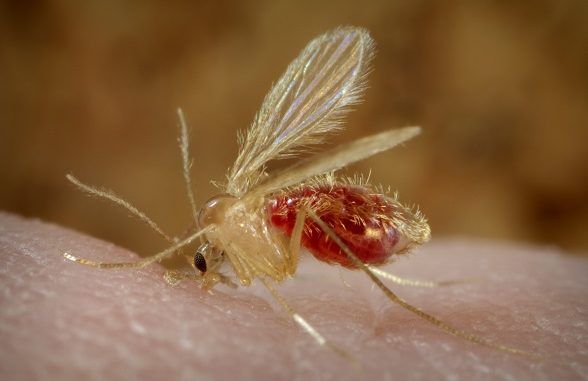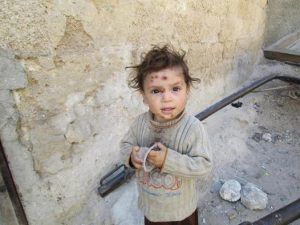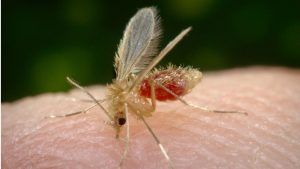
Leishmaniasis, a disfiguring flesh eating disease that had been contained in Syria is now spreading across the Middle East as millions are displaced from the war-torn region.
Some reports say that disease is transmitted by parasites feeding off corpses that have been dumped in the streets by ISIS, though this claim was refuted by scientists at the School of Tropical Medicines, according to the Mail online.
There is no immediate cure available for Leishmaniasis and the Syrian health system is practically non existent.

BYPASS THE CENSORS
Sign up to get unfiltered news delivered straight to your inbox.
You can unsubscribe any time. By subscribing you agree to our Terms of Use
The parasitic disease is allegedly being spread by infected sand flies although the disease is also described as tropical in nature.
Many of the temporary refugee settlements can increase the risk of picking up the disease because of malnutrition, poor housing, deficient medical facilities and overcrowding.
The Epoch Times reports:
(WARNING: Some of the photos in this article are graphic and might be disturbing for some readers.)
HIV+ bronchopulmonary leishmaniasis CD1a stain pic.twitter.com/UMvqPAEJJG
— Angelo Cassisa MD (@AngeloCassisa) November 26, 2015
The bug is usually carried by flies, but experts say the rotting bodies in the street has triggered a dramatic rise. Around 16 months ago, records suggest around 500 people were affected by the disease, but that is believed to have soared, Yahoo News reported.
#ISIS dumps bodies in streets, result: spread of flesh-eating disease Leishmaniosis. https://t.co/k10At8vmVc pic.twitter.com/CLq6XoOXwN
— Think AgainTurn Away (@ThinkAgain_DOS) December 3, 2015
Dilqash Isa, the chief of the Kurdish Red Crescent humanitarian group, told the website: “As a result of abominable acts by ISIS that included the killing of innocent people and dumping their corpses in streets, this is the leading factor behind the rapid spread of Leishmaniasis disease.”
The Syrian healthcare system has collapsed in the past five years due to the country’s civil war.
“We did not have knowledge about this deadly disease before,” a Syrian Kurdish fighter was quoted as saying. “We have been fighting on the battlefield for almost four years and this disease [was] basically generated from embattled areas of Tal Hamis, Hon and Qosa.”
Syria’s Healthcare System Has Been Devastated
“It is very possible in the area where there is a lot of military activity and population movement, those are circumstances in which an outbreak of the leishmaniasis can occur,” Dr. William Schaffner (MD) told RT :
“If someone dies who gets the infections then flies come. Then they multiply. You get many more flies that are infected. And then when the living people are in the same area the flies bite the living people,” Schaffner explained.
Syria’s healthcare system has been devastated by four years of conflict, as more than half of the public hospitals in the country are unable to provide full service. In ISIS-controlled areas hospitals are understaffed; healthcare workers have been forced to flee for their lives.
Additionally, international aid agencies are having extreme difficulty delivering vital medical supplies. According to the World Health Organization, more than 13 million Syrians are in need of humanitarian assistance.
While the outbreak of Leishmaniasis is seen in many of the poorest countries around the world, the Syrian outbreak has been dubbed the “Aleppo Button Disease” or the so-called “Aleppo boil” because of its distinctive sores.
Aleppo has been ravaged by fighting since mid-2012 and is divided between government control in the west and rebel control in the east. The surrounding area is controlled by a number of armed groups, including IS and the Al-Qaeda affiliate, Al-Nusra Front.
According to an Acta Dermato-Venereologica publication investigating Leishmaniasis cases in Syria, some 53,000 cases were reported in the country in 2012, while 41,000 cases were reported in the first two quarters of 2013. Citing Leishmaniasis Centre in Aleppo 22,365 cases were reported in 2013 in Aleppo alone. With the Syrian conflict gaining momentum and IS growing in strength, statistics has likely only worsened since then.
There’s no vaccine or prophylactic medication available for Leishmaniasis. Prolonged medical treatments do exist, but are almost impossible to find in war-torn Syria. The only way to prevent leishmaniasis is to avoid getting bitten by an infected sand fly. However Schaffner predicts that with dire humanitarian situation on the ground many more people will inevitably get infected.
“It is a skin infection and it can cause very disfiguring ulcers on the skin that left by themselves can take up to a year to heal. And sometime the parasite can get inside the body and cause a fatal infection,” Schaffner told RT.
Edmondo Burr
CEO
Assistant Editor
Latest posts by Edmondo Burr (see all)
- Police Arrest Suspect In Supermarket Baby Food Poisoning - October 1, 2017
- Seoul Secures Data From Electromagnetic Interference By N Korea - September 30, 2017
- The ‘World’s First Internet War’ Has Begun: Julian Assange - September 30, 2017


We should find cure for this before our soldier’s bring home larvae…
God forbid you get infected! When it comes down to it, who give a shi for the people that are dying
We should find cure for this before our soldier’s bring home larvae…
God forbid you get infected! When it comes down to it, who give a shi for the people that are dying